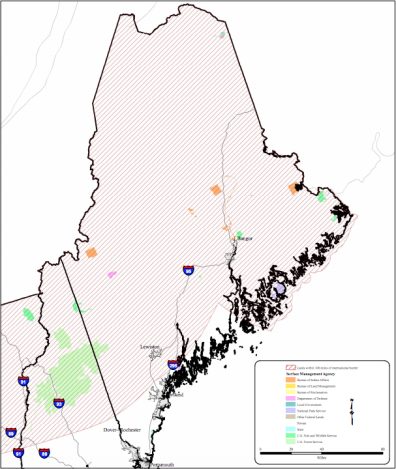
“OMG is that a drone?” (Photo by n0nick.)
The House of Representatives just set rules for debate on H.R. 2578, the “Conservation and Economic Growth Act,” meaning it will come to the floor for a vote. (Every single bill currently proposed in the House must be titled with the words “economic growth” or “jobs” or both. If it doesn’t, the bill is put out on the Capitol steps and abandoned, where it sings doleful songs to passing children.)
Sorry. Got sidetracked.
Among 2,578 other things having to do directly or vaguely with land management, H.R. 2578 establishes a 100-mile zone within the borders of the United States in which U.S. Customs and Border Protection is given a free hand. The Department of Homeland Security (DHS) thinks these measures are so important that DHS head Janet Napolitano deemed the effort “unnecessary” and “bad policy.”
House Democrats, who oppose the measure, have labeled the 100-mile area the “Drone Zone,” creating a website outfitted with intern-crafted, Twilight Zone-style graphics of a Predator drone sort of hovering over middle America. You are meant to be scared by this. As we mentioned yesterday, drones are the go-to bogeyman these days, the barely visible eye-in-the-sky that is taking out terrorists in Afghanistan and Yemen. (The “taking out” is not confirmed by the government; the term “terrorists” is not always supported by the evidence.) So, yeah, Drone Zone. Look out, America! Fine.
Here’s what else H.R. 2578 would do: waive the application of each of the following laws [PDF] on any public land in that area.
- National Environmental Policy Act of 1969
- Endangered Species Act of 1973
- Federal Water Pollution Control Act
- National Historic Preservation Act
- Migratory Bird Treaty Act
- Clean Air Act
- Archeological Resources Protection Act of 1979
- Safe Drinking Water Act
- Noise Control Act of 1972
- Solid Waste Disposal Act
- Comprehensive Environmental Response, Compensation, and Liability Act
- Archeological and Historic Preservation Act
- Antiquities Act of 1906
- Historic Sites Act of 1935
- Wild and Scenic Rivers Act
- Farmland Protection Policy Act
- Coastal Zone Management Act
- Wilderness Act
- Federal Land Policy and Management Act of 1976
- National Wildlife Refuge System Administration Act of 1966
- Fish and Wildlife Act of 1956
- Fish and Wildlife Coordination Act
- Portions of the Administrative Procedures Act
- Otay Mountain Wilderness Act
- Portions of the California Desert Protection Act of 1994
- National Park Service Organic Act
- NPS General Authorities Act of 1970
- National Parks and Recreation Act
- Arizona Desert Wilderness Act of 1990
- Rivers and Harbors Appropriation Act of 1899
- Bald Eagle Protection Act of 1940
- Native American Graves Protection and Repatriation Act
- American Indian Religious Freedom Act
- Religious Freedom Restoration Act
- Forest and Rangeland Renewable Resources Planning Act of 1974
- Multiple-Use Sustained-Yield Act of 1960
- Mineral Leasing Act
- Materials Act of 1947
- General Mining Act of 1872
How big is this 100-mile zone? Here’s what the zone looks like for Maine. It’s the striped area.
Again, the suspensions apply only to public land — but in much of the zone a lot of the land is public [PDF]. The total affected area is some 118 million acres, which is why nearly every major environmental organization opposes this aspect of the bill. Maybe the whole point of the drones is so that you’ll be busy looking up as the trucks start dumping toxic waste in the rivers.
If the House approves an amendment to H.R. 2578 that strips out the possibility of drone flyovers, that doesn’t make this thing any better. Drones aren’t the bad thing at the heart of the bill. The bad thing is leveraging concerns about public safety, border security, and job creation to create areas of the country in which duly considered legislation doesn’t apply. The Congress debated and enacted each of these bills, considered the importance of each, and decided to enact them. They shouldn’t be set aside so casually.
Anyway, when it gets to the floor of the House, H.R. 2578 will be debated for 90 minutes. Seems like more than enough time.





